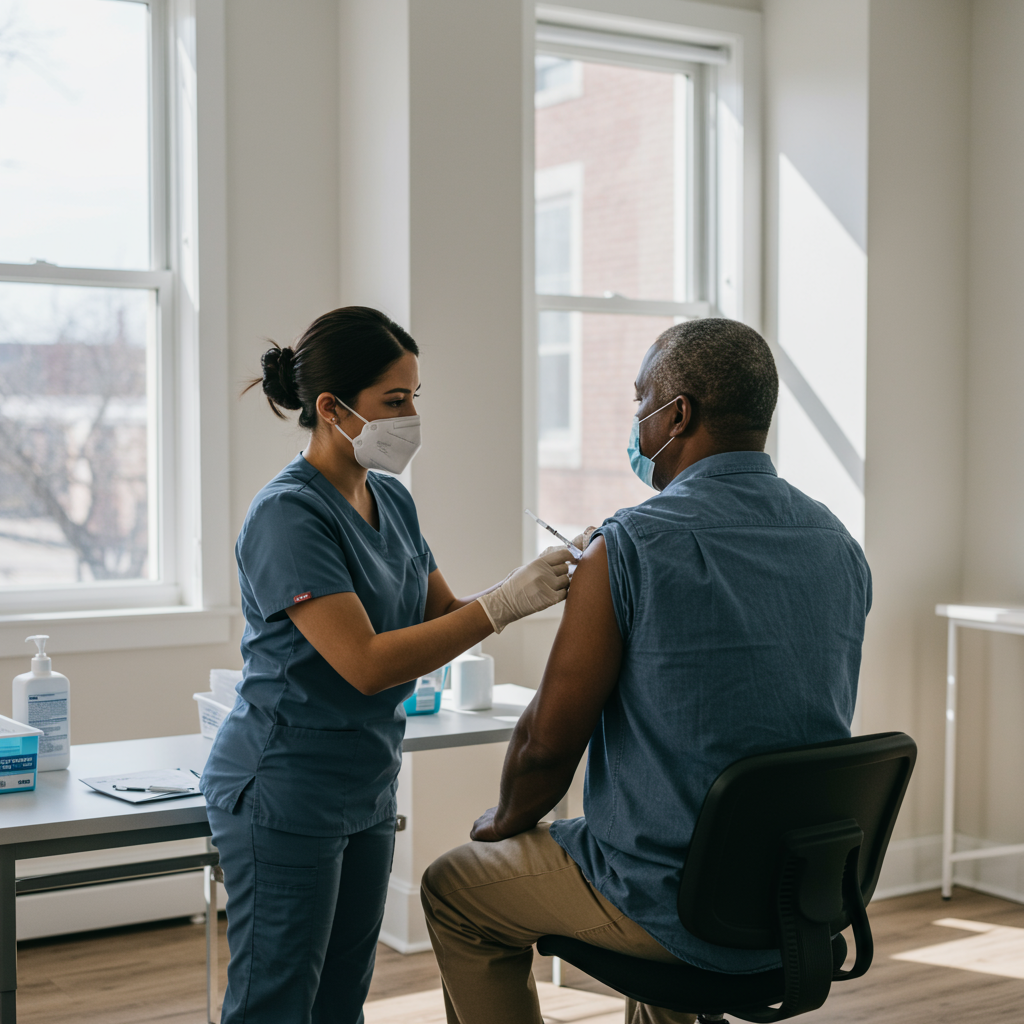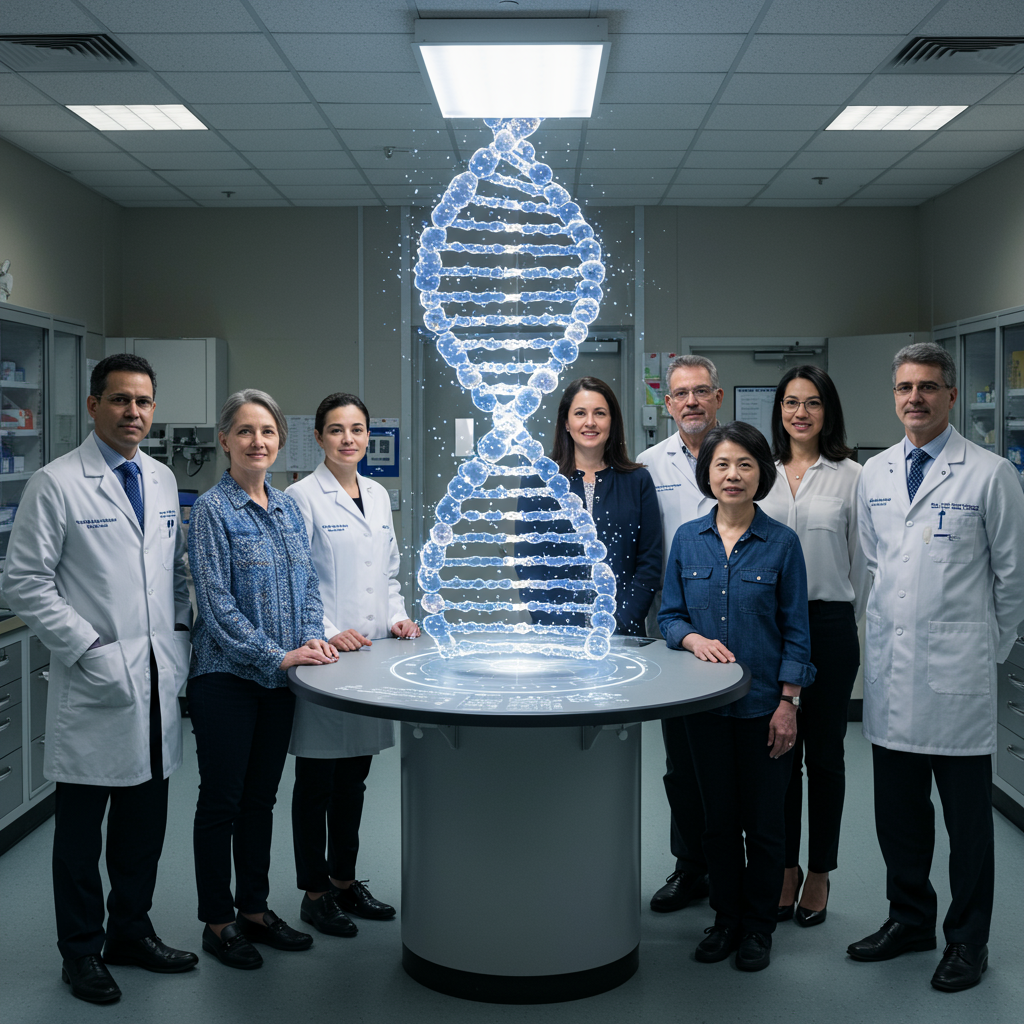Securing your latest COVID-19 vaccination in the bustling D.C. metropolitan area is simpler than ever, yet understanding the evolving guidelines and local access points remains crucial. With new variants circulating and community immunity waning, getting your updated shot for the 2024-2025 season is a vital step toward protecting yourself, your loved ones, and the broader public health of D.C., Maryland, and Virginia. This comprehensive guide cuts through the noise, providing clear, actionable information on eligibility, access, and what to expect when seeking your updated COVID-19 vaccine in the D.C. region.
Understanding the Latest COVID-19 Vaccine Updates
The landscape of COVID-19 vaccination has continually evolved since the pandemic’s onset. The focus has now shifted to updated vaccines specifically designed to combat newer strains of the SARS-CoV-2 virus. These formulations offer enhanced protection against currently circulating variants, making them a cornerstone of public health strategy.
Why Get Vaccinated Now? Waning Immunity and New Variants
Many people’s immunity from previous infections or vaccinations has naturally decreased over time. Dr. Mona Gahunia, an infectious diseases physician at Kaiser Permanente Mid-Atlantic, notes a visible uptick in infections, especially as winter approaches when respiratory illnesses tend to thrive. This waning immunity, coupled with the emergence of new variants like KP.2 and JN.1, underscores the urgency of vaccination. Dr. Dana Mueller, an internal medicine physician at Mary’s Center, emphasizes concern about potential strain on hospital capacity, reminding us that robust vaccination rates help prevent severe illness and keep emergency rooms accessible for all. Studies have consistently shown that vaccination is overwhelmingly safe and effective in reducing severe outcomes, hospitalization, and death.
What’s New with the 2024-2025 Vaccines?
Forget the term “booster”—the latest formulations are simply referred to as “updated vaccines.” For the 2024-2025 season, updated mRNA vaccines from Pfizer and Moderna target the KP.2 strain, which was largely responsible for recent COVID-19 surges. Novavax also offers an updated protein-based vaccine, targeting the JN.1 strain, identified as a parent variant of KP.2 and others in circulation. The Centers for Disease Control and Prevention (CDC) now broadly recommends an updated 2024-2025 COVID-19 vaccine for all individuals aged 6 months and older, regardless of prior vaccination history. This universal recommendation highlights a significant shift towards widespread protection for the community.
Who is Eligible for the Latest COVID-19 Vaccine?
While early federal restrictions might have narrowly defined eligibility, the current public health guidance in the D.C. region and nationwide is much more inclusive.
CDC Recommendations and High-Risk Factors
The CDC advises that most individuals aged 5 and older receive a single dose of an updated Pfizer or Moderna mRNA vaccine. Children aged 6 months to 4 years may require more than one shot based on their age and prior vaccination status. For Novavax, authorized for individuals 12 and older, a full primary series consists of two shots three weeks apart, or a single dose for those previously vaccinated at least two months prior who haven’t received an updated mRNA vaccine.
While the recommendation is broad, specific groups remain at a higher risk of severe illness. These include adults 65 and older, residents in long-term care facilities, and individuals with underlying conditions such as immunodeficiency, asthma, diabetes, cancer, obesity, pregnancy, and certain mental health conditions like depression. Even factors like physical inactivity or a history of smoking are recognized as increasing risk. In many cases, eligibility can be self-attested at vaccination sites, particularly at pharmacies.
The Role of Your Healthcare Provider
Navigating personal health decisions is always best done in consultation with your doctor. Dr. Gahunia strongly advises speaking with your healthcare provider, particularly because “the list [of qualifying conditions] is so extensive, some patients might not even realize that they have an underlying condition.” A doctor’s note or even written communication can be beneficial to ensure a smooth vaccination experience, although it may not always be required, especially at retail pharmacies. Your doctor can help you understand your specific risk factors and recommend the most appropriate vaccination schedule for you.
Navigating Vaccine Access in the D.C. Metropolitan Area
The D.C. region has worked proactively to ensure residents have easy access to the latest COVID-19 vaccines, moving swiftly to remove barriers like prescription requirements. This regional commitment underscores the importance of public health accessibility.
D.C. Specific Vaccine Access
The District of Columbia has enacted emergency legislation to ensure residents can obtain COVID-19 vaccinations without a prescription. This means the earlier requirement for a doctor’s prescription to get the vaccine is no longer in effect. D.C. Health proactively engages in outreach, leveraging mobile health units, school clinics, pharmacies, and urgent care centers to bring vaccines directly to communities. You can find detailed information on the DC Health website or by calling 202-442-5955.
Maryland’s Approach to Vaccine Availability
In Maryland, a 2024 state law eliminates the need for a prescription to receive your COVID-19 vaccine. The Maryland Department of Health is committed to maintaining broad access for all residents. While some individual locations might have specific screening processes, generally, you can self-attest to your eligibility. Pharmacists, for instance, are guided by regulations that permit them to accept your word regarding underlying conditions. You do not need to be a Maryland resident to get vaccinated in the state, though individual sites may have their own policies on residency or accepting new clients.
Virginia’s Vaccination Guidelines
Virginia also streamlined access with a standing order issued by State Health Commissioner Dr. Karen Shelton. This order, effective September 10, ensures that Virginia residents aged 18 and older, who are eligible under federal guidelines, do not need a prescription for their COVID-19 vaccine. Dr. Shelton affirmed, “We are resolved to increase access to the updated formulation of the COVID-19 vaccine to all eligible Virginians.” Similar to Maryland, a screening process, including self-attestation, may occur at individual locations. The Virginia Department of Health encourages individuals under 18 or those with specific concerns to consult their healthcare provider. Proof of Virginia residency is not required for vaccination within the state.
Where to Get Your Updated COVID-19 Vaccine
Accessibility is key, and the D.C. region offers numerous convenient locations for vaccination. The Federal Retail Pharmacy Program (FRPP) has played a particularly significant role in vaccine distribution nationwide.
Pharmacies, Clinics, and Community Centers
Retail pharmacies are a primary gateway for updated COVID-19 vaccines. Major chains like Walgreens, Walmart, and CVS offer convenient appointments, and the CDC reports that FRPP partners administered nearly 68% of bivalent vaccine doses nationally, highlighting their critical role. These locations often provide extended hours and walk-in options, making vaccination highly accessible, especially in urban areas. Beyond pharmacies, you can find vaccines at local clinics, doctor’s offices, and community health centers like Mary’s Center in D.C. and Maryland. Veterans can also access vaccinations at Department of Veterans Affairs (VA) facilities. For a personalized search, the federal government’s Vaccines.gov website allows you to locate sites by ZIP code, or you can text your ZIP code to 438829 or call 800-232-0233.
Cost and Insurance Coverage
Good news: for most individuals, the updated COVID-19 vaccine comes at no out-of-pocket cost. While the federal government no longer directly covers vaccine expenses, private insurance, Medicare, and Medicaid are expected to fully cover the cost. If you are uninsured, resources are available. Contact your local or state public health department or a federally qualified health center for information on no-cost vaccination opportunities. Additionally, the federal Vaccines for Children (VFC) Program may provide no-cost or low-cost vaccines for eligible children aged 18 and younger.
Preparing for Your Vaccination Appointment
When you head to your appointment, be sure to bring your proof of identity (like a driver’s license or state-issued ID) and your health insurance card. While vaccine cards are no longer centrally distributed by the CDC and aren’t strictly mandatory for receiving a vaccine, it’s wise to bring any existing vaccination records you have. If you’ve lost your card, you can often request a new one or a copy of your record from the original vaccination site.
Addressing Common Concerns About COVID-19 Vaccination
It’s natural to have questions about any medical procedure. Understanding vaccine safety and how it interacts with other immunizations can help you make an informed decision.
Understanding Vaccine Safety and Side Effects
The overwhelming scientific evidence indicates that COVID-19 vaccines are safe and effective for the vast majority of people. Common side effects are generally mild to moderate and temporary. These might include soreness, redness, or swelling at the injection site, headache, fatigue, muscle or joint pain, nausea, fever, or chills. These reactions are normal and are signs that your body is building protection. While rare adverse reactions have occurred, the benefits of vaccination in preventing severe illness, hospitalization, and death far outweigh these minimal risks.
Co-Administration with Flu and RSV Vaccines
For added convenience and protection, the CDC confirms it is safe to receive your flu vaccine and updated COVID-19 vaccine simultaneously. You might experience a slightly higher likelihood of temporary side effects like headache or fatigue when getting both together. Additionally, individuals aged 75 or older, and those 60-74 with specific underlying health conditions, are encouraged to consider the RSV vaccine. While it’s generally safe to get the RSV vaccine concurrently with COVID-19 and flu shots, some health experts suggest spacing them out if preferred. Note that if you received the RSV vaccine last year, you typically do not need another dose this season.
Frequently Asked Questions
Q1: What are the current eligibility requirements for the COVID-19 vaccine in the D.C. region?
The Centers for Disease Control and Prevention (CDC) broadly recommends an updated 2024-2025 COVID-19 vaccine for all individuals aged 6 months and older. While early federal restrictions might have focused on specific high-risk groups, D.C., Maryland, and Virginia have largely removed prescription requirements, making the vaccine accessible to almost everyone. High-risk individuals, including those 65 and older or with underlying health conditions like asthma, diabetes, or obesity, remain a priority, and their eligibility can often be self-attested at vaccination sites.
Q2: Where can I find the latest COVID-19 vaccine in D.C., Maryland, or Virginia?
Updated COVID-19 vaccines are widely available across the D.C. metropolitan area. Retail pharmacies like CVS, Walgreens, and Walmart are key access points, often offering convenient walk-in or appointment options. You can also find vaccines at local clinics, doctor’s offices, community health centers, and VA facilities for veterans. To locate the nearest vaccination site, visit Vaccines.gov, text your ZIP code to 438829, or call 800-232-0233. Local health department websites for D.C., Maryland, and Virginia also provide specific resources and locations.
Q3: Will I have to pay for the updated COVID-19 vaccine in the D.C. area?
For most individuals, the updated COVID-19 vaccine is available at no out-of-pocket cost. While the federal government no longer directly covers the vaccine expense, health insurance plans—including private insurance, Medicare, and Medicaid—are expected to cover the full cost. If you are uninsured, contact your local or state public health department or a federally qualified health center, as they may offer no-cost vaccination opportunities. Additionally, the Vaccines for Children (VFC) Program assists with low-cost or no-cost vaccines for eligible children aged 18 and younger.
The Path Forward: Protecting Our Community
The availability of updated COVID-19 vaccines in the D.C. region represents a continued commitment to public health. While vaccine-related policies and access points have seen rapid shifts, the consistent message from health experts is clear: vaccination is a safe and effective way to protect yourself and others. As Dr. William Moss of Johns Hopkins Bloomberg School of Public Health reminds us, educating the public about vaccines is an ongoing effort. By staying informed and taking proactive steps, we can collectively strengthen our community’s resilience against respiratory illnesses.
The latest COVID-19 vaccines, targeting current variants, offer crucial protection. We encourage all eligible residents in D.C., Maryland, and Virginia to prioritize getting their updated shot. Consult your healthcare provider for personalized advice or visit an accessible vaccination site today. Your decision to vaccinate contributes significantly to the health and safety of our entire D.C. region.
References
- <a href="https://www.nbcwashington.com/news/health/the-vaccine-divide-dc-maryland-virginia/3980026/?utmsource=flipboard&utmcontent=topic%2Fcoronavirus”>www.nbcwashington.com
- states.aarp.org
- wtop.com
- www.cdc.gov




